- Tags:
- coronavirus / COVID-19
Related Article
-
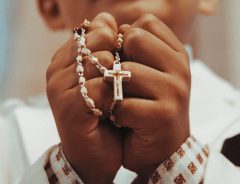
The Happy Science Religious Movement Claims to Hold the Cure for COVID-19
-
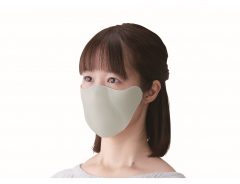
Japanese maker releases stringless adhesive masks to relieve stress on ears
-
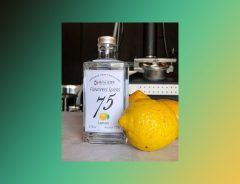
“Kusunohana Flavored Spirits 75” made with rice and lemons can also be used as a sanitizer
-
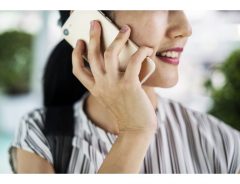
Teleworking mum accidentally uses polite language on her kids and slang on her boss!
-
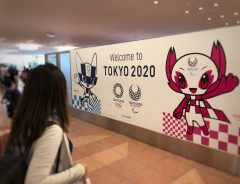
Olympic 2020 games to go ahead despite COVID-19 concerns
-
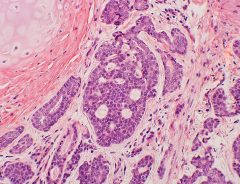
Kyoto University scientists create mini bronchi to test COVID-19 drugs
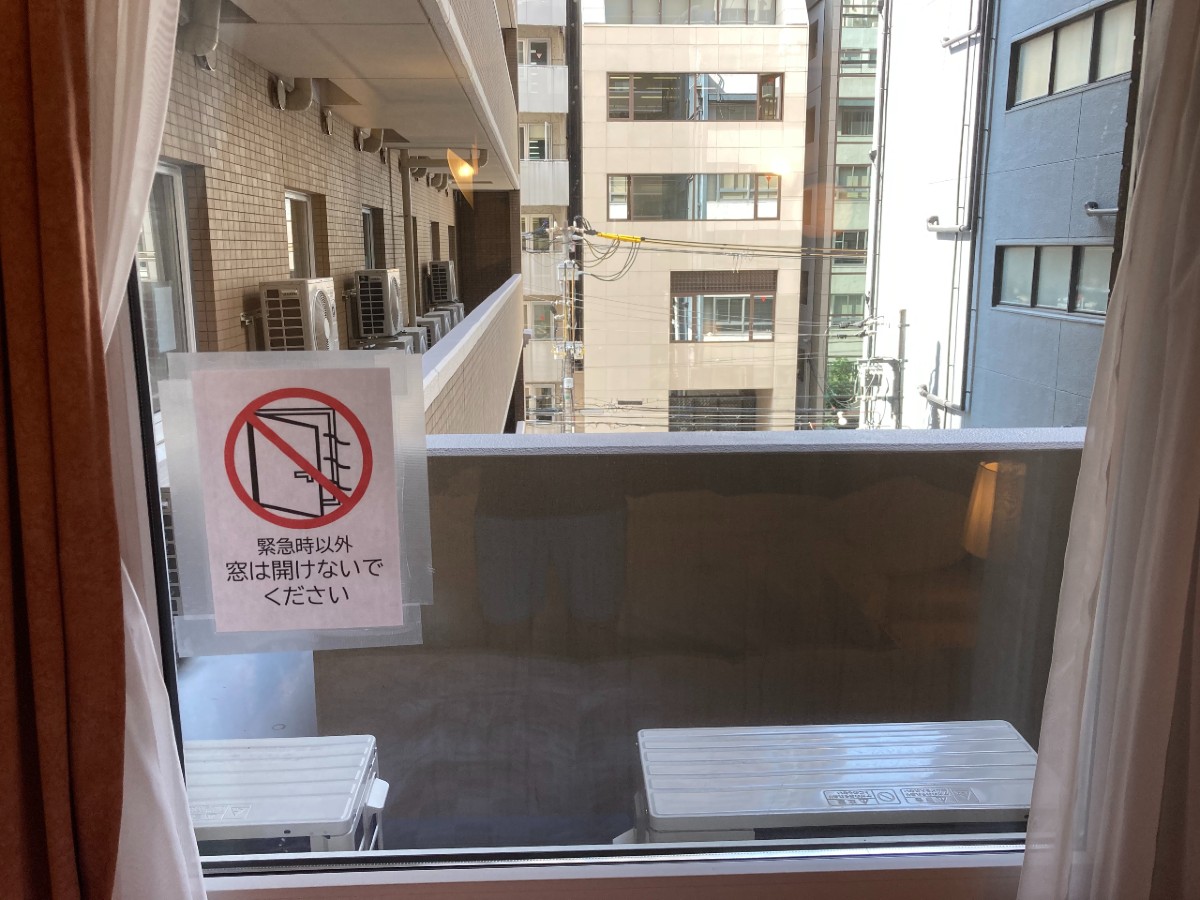


Covid-19, the pandemic that took hold of the world in early 2020 and still won’t let go.
It’s been more than a year and a half since Covid-19 spread around the world. And despite vaccines rolling out, in some countries like Japan, cases continue at an all-time high.
A quick Google search shows that Japan has had over 1.61 million cases and 16,561 people have died so far. The 7-day average in September was over 13,000 new cases a day.
Despite this record number of daily cases, Japan held both the Olympic and Paralympic Games and life seems to continue as usual for most people.
Having stayed Covid-free for a year and a half, getting infected kind of stopped being a concern of mine, until I did get infected.
So this is my story of getting Covid-19
I live in Osaka, which consistently ranks second to Tokyo for the highest daily Covid-19 infections in Japan.
But like many others across Japan, I commute to work, go to the supermarket, and even go out shopping and see my friends sometimes.
I am also a member of a 24-hour gym and hot yoga studio and frequent them several times a week. Although everyone wears masks, I am certainly aware that doing yoga in a hot room with 20 people is the epitome of what Japanese call misshu 密集, or crowding together.
That being said, I don’t believe I was infected from going to yoga or the gym. Or even from riding crowded trains to work in downtown Umeda or teaching English face-to-face in close quarters.
So how did I get infected? Well, let me tell the story from the beginning…
Getting vaccinated
I received my vaccination tickets from Osaka in June and registered with the website linked in the documents provided. However often I checked the website though, there were never any vaccination sites with vaccines available.
I have an autoimmune disease which puts me at high risk if infected with Covid-19 so eventually I talked with my doctor and was able to reserve my first Pfizer vaccine for August 12.
All of my family members were vaccinated back in the United States and none of them had any serious side effects. So although like many others I was nervous about putting this new mRNA medical technology in my body, that helped ease my anxiety a bit.
It’s interesting to note that when I asked my doctor if I could get vaccinated, he said there wouldn’t be any available until after the Japanese Obon holiday. However, the nurse replied that they had vaccines available. It makes me wonder if there is a lot of misunderstanding about the supply of vaccines in Japan.
When my vaccination date came that Thursday, I went to my GI doctor and waited in a row of chairs next to two other people. The nurse told me that one vial contains six doses so they reserve vaccines in groups.
Before the nurse injected me, she said to inform her immediately if I felt itchy or had trouble breathing. Upon being injected, I felt a sudden wave of heat spread throughout my body and a bit light-headed and dizzy. I could feel my heart racing and wondered if I was having an allergic reaction.
Luckily, this died down within a minute. The nurse continued to monitor us over the next 15 minutes for allergic reactions, but we were all fine and sent on our way. My arm felt sore later that day and I felt tired, but otherwise fine.
I went to work the next two days and my arm was still sore, but it wasn’t until I got home after work on Saturday that I realized I had a fever of 38 C. My fever broke Sunday evening, but by then both my girlfriend and I had developed sore throats. As my fever receded, my girlfriend became feverish. On Monday, she was burning up at 39 C.
We wondered if me getting vaccinated somehow got my girlfriend sick, but that didn’t make any sense so she went for a PCR test at a clinic nearby our home.
The difficult thing about having a fever these days is that no doctor will see you without a negative PCR test result. The thing is that PCR test results aren’t available until the next day, so you have to wait to see the doctor, even when you’re really sick.
Both the antigen test (results available after 15 minutes) and the PCR test came back negative for Covid-19. And her fever went down Tuesday, so we thought we were in the clear.
Both of us still had sore throats though, so we went to see an otolaryngologist (an ear, nose and throat doctor) and he gave us some meds.
Photo by Mujo
Come Thursday and my girlfriend’s fever had returned. She was in really bad shape this time with a sore throat, headache, and body ache. She stayed in bed all day and I did my best to take care of her and keep her hydrated.
Friday she said she felt even worse and thought if she got an IV drip it would break her fever. She called the clinic where she’d had the PCR test, but they said they wouldn’t treat her unless she got another PCR test. So she went in again and both results came back negative again.
Saturday she returned to the clinic and the doctor said her fever was probably because her throat was really inflamed, but was in the healing process so she’d get better soon.
By Tuesday her fever had finally subsided and she said she felt much better, but her throat was still inflamed and she’d developed a cough.
And that’s when I got sick.
I work from home on Tuesdays, so I’d just finished my remote shift and felt completely exhausted. I lay in bed while my girlfriend prepared dinner. After we ate, I was washing the dishes and kept feeling like I had to clear my throat. Then I coughed.
My girlfriend and I looked at each other. It was the same sounding cough she’d developed over the last few days. She made me check my temperature and sure enough I was burning up at 38 C.
Photo by Mujo
I called out from work the next day and upon my girlfriend’s insistence went to the local clinic for my own PCR test to check, just in case.
Still feverish, I doubled up my masks and made the 10-minute bike ride to the neighborhood clinic offering Covid tests. I approached the testing trailer parked outside of the clinic and a nurse took my health insurance card.
As my girlfriend had warned, I was made to sit in a stifling tent with the other people waiting to take PCR tests and for their results. The guy next to me had an awful-sounding cough. I figured that even if I tested negative I’d end up positive the next day from being stuck in this tent with other sick people.
Within 10 minutes, a different nurse suited up in full hazmat gear approached me. She took my temperature, measured my oxygen levels, and then proceeded with the antigen test.
As everyone says, getting a cotton swab inserted deep into your nostril is a bit painful. Luckily, I’d brought tissues to wipe away the tears that had formed in my eyes, as well as my now runny nose.
15 minutes later, the doctor approached me, also in full hazmat gear. He confirmed my name and in extremely slow Japanese told me that I was positive. I didn’t believe him and asked if my recent vaccine could have resulted in a false positive. He denied that there was any connection, told me to stay hydrated and that the nurse would give me some medication.
I was shocked. I was also embarrassed because the guy with the terrible cough could clearly overhear everything the doctor said and stared at me the whole time after learning of my positive test results.
Photo by Mujo
Some time later the nurse who I’d first handed my health insurance card to came over and returned it. She also gave me some medication for fever and Kampo medicine for colds and cough.
I was told that strong medications and pain relievers may help with symptoms while sick with Covid-19, but there are often adverse reactions after recovering. This is why healthcare workers only give mild medication for fever and cough.
Interesting to note that this nurse, who interacts with everyone coming for a Covid test, was wearing her normal nurse’s uniform with a mask, but no extra protection like the nurse who performed my antigen test or the doctor. Surprising she was made to come talk with me after my positive test results. She said, お大事に odaijini, or "feel better" and I replied 気をつけてください, "be careful."
How did I get infected with Covid-19?
Since I tested positive and my girlfriend and I had all the same symptoms, she went to get tested a third time two days after my test and the results came back positive.
So the logical conclusion is that my girlfriend was infected and then passed it to me. It is strange that she tested negative twice. It’s also odd that it there was a week between her symptoms and mine appearing.
How did she get infected?
My girlfriend recently quit her job to make a career change and in the meantime is working part-time at an izakaya. She agreed to work there because the owner said they don’t serve alcohol and follow the government restrictions so close by 8 pm.
However, the reality is that the shop often fills up with regulars so the owner closes the shutter by 8 pm and serves alcohol in a semi-private fashion. In this way, the business can receive the government subsidy and continue making money.
Although my girlfriend says that many customers talk about getting vaccinated and everyone is wearing masks except while eating and drinking, customers usually buy the staff drinks. So it’s possible she was infected at work. It is not certain, but that is the most likely possibility, seeing as how she does not go out much otherwise.
What happens when you’re sick with Covid-19?
When you find out you’ve been infected with Covid-19, the positive test results at a clinic or hospital are relayed to your local ward office and 保健所 hokenjo, or health care center. Within a few days the hokenjo will call you to confirm your results, check your symptoms, and determine whether your case warrants a government-funded quarantine in a hotel, or even hospitalization in extreme circumstances.
My condition was at its worst for the first few days. My fever went as high as 39 C. I had a constant headache, body aches, and fatigue. I slept through most of that Wednesday after returning home from my test, as well as Thursday.
Despite hearing stories of people losing their sense of smell and taste, I, fortunately, continued enjoying food. There is some speculation that people infected with the Delta variant do not generally lose these senses, but do have a long-lasting cough.
By Friday my fever had lowered and hovered around 37.5 C and though the general aches and pains remained, I felt much better overall, but did begin to develop a cough. I thought to my self, Wow, this is it? Corona isn’t such a big deal. I’ll be fine in a few days.
Unfortunately, when the hokenjo finally called on Friday and I relayed my condition, they recommended I be moved to a hotel. The woman on the phone said because of my autoimmune disease, there was a chance my condition could suddenly worsen. She said although those who are quarantined at the hotel do not receive any treatment, those who do require treatment or whose condition worsen can immediately be transferred to a hospital.
So I reluctantly agreed to go to the hotel. I was told that the period of ryōyō 療養 or recuperation is at least 10 days from the time Covid-19 symptoms develop. So it was decided that I would stay at a hotel in Osaka for 6 days; from Sunday August 29, until September 3.
An unmarked, black taxi arrived outside my apartment on Sunday morning to whisk me off to my temporary home. The driver was completed separated from me by a wall of transparent vinyl stapled behind the front seats.
What’s it like to be quarantined at a hotel in Japan?
The taxi arrived at the hotel beside a back entrance designated specifically for the hotel quarantine. Upon entering, the makeshift lobby featured a large partition with sliding windows, behind which there were nurses and hotel staff who gave me and a man who had arrived right before me a short orientation explaining the rules of our stay.
Photo by Mujo
Continuing down a corridor there were many trash bins lined up, as well as trash bags, and linens to make up our beds by ourselves, as no staff would be entering our rooms. Before arriving at the elevators there was an area stocked with water, green tea, and two microwave ovens.
By the elevators there was a large shelf, behind which was another partition with sliding windows. Staff opened the windows to stock the shelves with bento boxes for hotel patients.
This was the busiest area and also the biggest surprise to me. Rather than staying in our rooms 24/7, three times a day a loudspeaker announced when we were allowed to descend to the first floor to pick up our meals and bring them back to our rooms to eat.
On my first day, I saw how crowded the area got after the announcement so I always waited an hour or so before venturing downstairs to pick up my meal to avoid standing in line at the microwaves with all the other sick guys.
Another interesting point was that all of the patients in my hotel, or at least my area, were male. I suppose that makes sense, right? I was surprised that so many of them appeared to be so young, but realized that they could have health conditions like me, or perhaps they were being separated from their families to reduce the risk of infecting them at home.
So anyways, besides picking up meals, I was confined to my room for 6 days.
Photo by Mujo
My hotel was東横Toyoko Inn, your average Japanese business hotel. The room had two single beds, a desk, TV, and a bathroom with a washlet. There was Wi-Fi and even free VOD, though not much of a selection in my opinion.
The meals were standard Japanese bentos with onigiri, fried foods, stewed vegetables, and rice. There was also fruit jello available sometimes. The meals weren’t bad, but weren’t particularly fresh and got quite soggy after being microwaved.
Photo by Mujo
If it was a real vacation, it would get a one-star review. But the fact is that the Japanese government is putting up countless Covid-19 patients in hotels and feeding them, all for free.
I was required to use my phone to update my temperature, oxygen levels, and other symptoms twice a day into a web system called HER-SYS, or the Health Center Real-time Information-sharing System on COVID-19.
A nurse stationed at the hotel called my room in the morning and evening to confirm my condition and let me ask any questions.
My 6 days of hotel quarantine were without incident and time passed slowly.
On my last day, the nurse confirmed I did not have a fever and my condition had not worsened before letting me out of the hotel. She said I was allowed to take public transportation home, but was not supposed to go out anywhere along the way.
A point to note, I waited in a line of other patients to be released and upon returning my oxygen meter and hotel card, was set free into the streets of Osaka. It was a bit surreal to see so many masked men who had just recovered from Covid-19 returning to their normal lives. I felt like I was doing something wrong, or like I’d just been released from prison.
I did follow the nurse’s guidelines and returned straight home on the subway without stopping anywhere along the way. I cannot say everyone did the same though, as I saw a few men exit the hotel, cross the street and immediately enter a 711. Although they’d been cleared to return home and determined no long infectious, it still struck me as a bit dangerous, especially considering many other like myself still had lingering coughs.
How long did it take to recover from Covid-19?
To review my symptoms, I had a high fever for the first few days with a headache and body soreness. For the first two days of my hotel quarantine I had a low fever, developed a cough, and my breath became a bit wheezy.
I was required to quarantine for a total of 10 days from the day my symptoms appeared. That does not mean I have recovered fully however, as I still have a cough. The phlegm that I cough up is green so I am now taking antibiotics and cough medicine, two weeks after being infected. Having been basically bedridden for two weeks I’ve lost a lot of physical strength and get tired easily when I go out. And because of the mild infection in my airways I get out of breath easily.
Although I’ve been cleared to re-enter society, return to work, and am supposedly no longer infectious, I try to hold in my cough when in public places because I don’t want people to think that I’m sick or have Covid.
What kind of support is available for Covid-19?
As I described above, the local government stayed in contact with me about my condition and set up my quarantine in a hotel. They sent me an information package of nearby clinics that provide online medical examinations with doctors and pharmacies that will ship medication to your address.
Once the quarantine period has ended, you should receive a document stating the period and that you’ve recovered. I am enrolled in National Health Insurance so I should be able to apply for compensation for the duration I was unable to work and receive my salary.
The rules, details of this process, and how much money I’ll be able to receive is all still uncertain to me. If you were infected, you should ask your hokenjo representative if your local government offers the same sort of compensation.
Final Thoughts
I believe that my experience is somewhat of an average Covid-19 case. Some may be without symptoms, others require hospitalization, but most are able to stay at home and recover on their own.
I think the Japanese government did fairly well communicating with me, though all the phone calls would have been difficult if I could not speak Japanese.
I was surprised though that the hokenjo didn’t ask where I’d gone the days before receiving my positive test results as I thought contact tracing was an important part of curbing infections from spreading.
I hope that my story is informative and that it will remind you to take precautions from getting infected andinfecting others.
Thanks for reading.